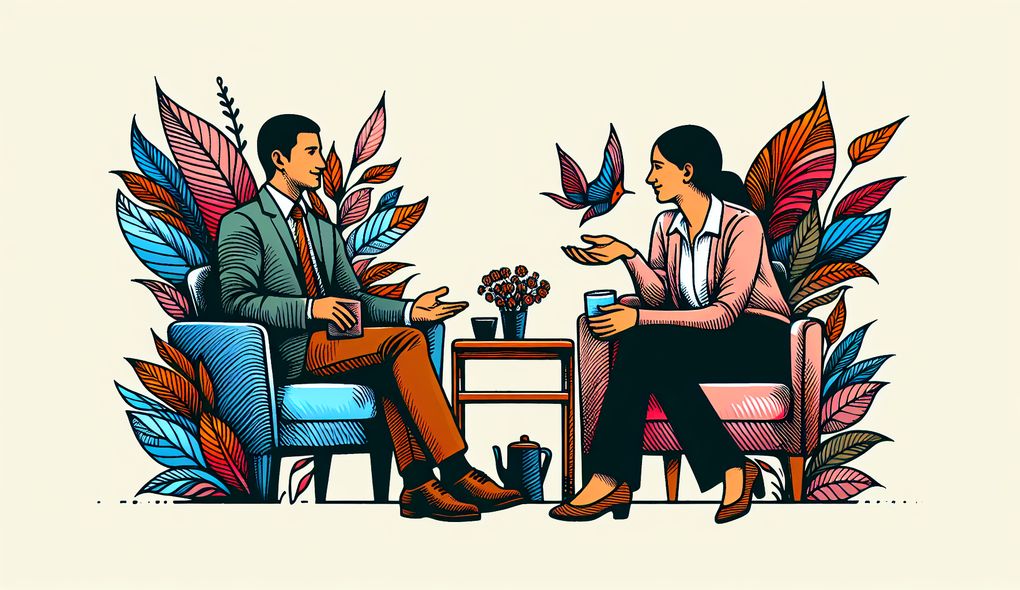Tell us about a time when you had to handle a particularly difficult session with a couple. How did you navigate through it?
JUNIOR LEVEL

Sample answer to the question:
One time, I had a couple come in who were constantly arguing and unable to communicate effectively. It was clear that they were both emotionally charged and had a lot of resentment towards each other. To navigate through this difficult session, I focused on creating a safe and non-judgmental space for them to express their feelings. I actively listened to both parties and acknowledged their emotions. I used therapeutic techniques such as reflective listening and paraphrasing to ensure that both individuals felt heard and understood. Additionally, I guided them through exercises that helped improve their communication skills and taught them strategies for resolving conflicts in a healthy way.
Here is a more solid answer:
I remember a challenging session where a couple came in with deep-rooted issues that had caused significant emotional pain. To navigate through this difficult session, I relied on my strong communication and interpersonal skills. I created a safe and non-judgmental environment where they felt comfortable expressing their frustrations and concerns. I employed techniques such as active listening, empathic validation, and open-ended questions to facilitate their communication. Drawing from my knowledge of therapeutic modalities, I incorporated Cognitive Behavioral Therapy (CBT) techniques to help them identify and challenge negative thought patterns that were contributing to their conflicts. I also used Emotionally Focused Therapy (EFT) interventions to address their attachment issues and foster emotional bonding. Throughout the session, I remained composed and neutral, offering support and guidance without taking sides. By the end of the session, the couple had developed a better understanding of each other's perspectives and expressed a willingness to work together towards resolution.
Why is this a more solid answer?
The solid answer expands on the basic answer by providing specific details about the therapeutic modalities and interventions used, such as Cognitive Behavioral Therapy (CBT) and Emotionally Focused Therapy (EFT). It also includes an example of how the candidate handled the emotional situations with professionalism by remaining composed and neutral. However, the answer could benefit from further elaboration on the specific techniques employed during the session.
An example of a exceptional answer:
In a challenging session, I worked with a couple who had been struggling with infidelity and trust issues for several years. To navigate through this difficult session, I utilized my strong communication and interpersonal skills to establish trust and create a safe space for them. I employed a combination of therapeutic modalities, starting with Gottman Method Couples Therapy to assess the dynamics of their relationship and identify the underlying issues. Through this approach, I facilitated open and honest dialogue, ensuring both individuals felt heard and validated. To address the emotional intensity, I integrated mindfulness-based techniques, guiding them to explore their emotions without judgment and develop self-awareness. Additionally, I utilized Solution-Focused Brief Therapy to help them set achievable goals and focus on building a healthier future. Throughout the session, I maintained professionalism by remaining empathetic, non-biased, and maintaining confidentiality. By the end of the session, the couple had experienced a significant breakthrough in their understanding of each other and were motivated to continue therapy to rebuild their relationship.
Why is this an exceptional answer?
The exceptional answer goes above and beyond by incorporating additional therapeutic modalities, such as Gottman Method Couples Therapy and Solution-Focused Brief Therapy, to address the couple's specific challenges. The answer also highlights the candidate's use of mindfulness-based techniques to navigate the emotional intensity. The candidate's professionalism is evident through their emphasis on empathy, non-bias, and confidentiality. The answer demonstrates a comprehensive approach to handling the difficult session and shows the candidate's ability to guide the couple towards a positive outcome.
How to prepare for this question:
- Familiarize yourself with various therapeutic modalities specific to couple's therapy, such as Cognitive Behavioral Therapy (CBT), Emotionally Focused Therapy (EFT), Gottman Method Couples Therapy, and Solution-Focused Brief Therapy.
- Reflect on past experiences where you successfully mediated conflicts and facilitated effective communication between individuals.
- Develop your active listening skills and practice empathic validation to ensure clients feel heard and understood during difficult sessions.
- Consider taking courses or attending seminars on mindfulness-based techniques and how they can be applied in a therapeutic setting.
- Review the ethical guidelines and principles of confidentiality related to marriage therapy to ensure you maintain a high level of professionalism.
- Stay updated with the latest research and best practices in the field of couple's therapy to enhance your knowledge and skills.
What are interviewers evaluating with this question?
- Communication and Interpersonal Skills
- Ability to handle emotional situations with professionalism
- Knowledge of therapeutic modalities and interventions specific to couple's therapy

